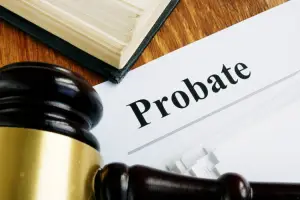
When a loved one dies, there are many things for families and friends to consider with regard to a decedent’s property. Probate is generally necessary to transfer a decedent’s assets to specific people, sometimes referred to as devisees, beneficiaries, or heirs.
Who inherits the decedent’s property is determined either by the decedent’s will or by the Texas laws of intestacy if the decedent died without a will.
In Texas, who initiates a probate also depends on whether the decedent had a will or not. If a decedent dies with a will, the will typically names an individual to serve as an independent executor or personal representative. This named person has first priority to serve.
If the decedent did not have a will, the Texas Estates Code governs who has priority to serve. Typically, these people include the surviving spouse, children or siblings of the decedent.
The named independent executor will first file an application for probate with the county court or probate court where the decedent died or where the decedent owned property. If the independent executor is not a resident of Texas, the independent executor must appoint a Texas resident to serve as an agent. After the application is filed, a hearing with a judge will occur. At this hearing, the judge will hear testimony from the independent executor regarding the decedent’s personal background and the independent executor’s qualifications to serve.
After the hearing, the judge will issue an Order Admitting the Will to Probate and Issuing Letters Testamentary. Letters Testamentary is the document that authorizes the independent executor to act upon the estate in matters related to the estate. The title of independent executor comes with responsibilities such as ensuring the decedent did not have any secured or unsecured creditors and notifying the decedent’s beneficiaries or heirs of the probate proceedings.
One of the most important jobs of the independent executor is to distribute the probate assets of the decedent. To assist with the distribution of assets the independent executor completes an inventory that details the property owned by the decedent at death and the value of each item. These assets often are real property, bank accounts, vehicles, and household effects. The independent executor has a duty to the devisees, beneficiaries, or heirs to ensure that the proper distributions are made to the proper people as provided in the will or according to Texas intestacy laws if the decedent died without a will. The will often includes a distribution plan that provides a roadmap as to how the independent executor is to distribute the assets.
Texas probates generally take anywhere from four months to two years depending on the complexity of the estate, the property in held in the estate and ultimate recipients of the estate property.
Similarly, the cost of probate depends on the complexity of the estate. If the probate is contested or contains complex assets a higher cost should be expected. Probate may not always be required to transfer the assets of the decedent. For example, an affidavit of heirship or a small estates affidavit may be an option; however, before proceeding with an alternative to probate, an attorney should be contacted to verify that a transfer outside of probate will be legal.
Texas classifies a decedent’s assets into two board categories: non-probate assets and testamentary assets, also known as and hereinafter referred to as probate assets. Non-probate assets pass by specific terms associated with the assets, while probate assets pass by specific terms in the decedent’s will or by Texas intestacy laws. Non-probate assets include assets that designate a beneficiary to receive the asset after the owner has passed, such as life insurance policies, payable on death accounts, or transfer on death accounts.
Non-probate assets also include assets titled as joint tenants with rights of survivorship. Non-probate assets are governed by a contract which a decedent executes during their lifetime. The contract governing a non-probate asset prevails over a will and distribution cannot be changed by naming a different devise in a will.
Conclusion:
Probates and the transfer of property after the death of a loved one can be stressful for the family and friends of a decedent, especially when the estate is complicated, assets in the estate are not titled correctly, or there is family discord. An attorney skilled in these areas and can provide efficient and timely services.
If you are in need of an attorney to assist you in the probate of a loved one’s estate, please contact Ashley Pirtle at apirtle@cdmlaw.com or call 806-762-5281.